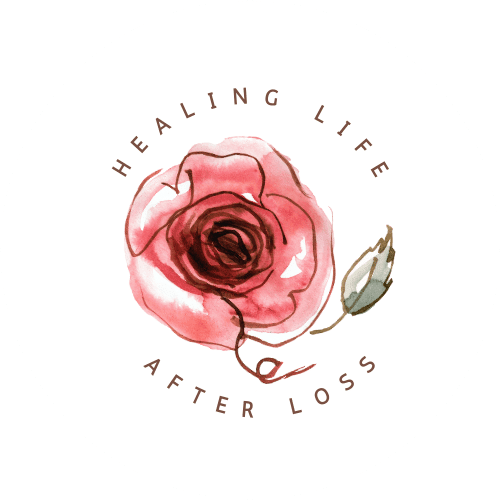Seeking Comfort in Grief: Helpful Tips and Resources

Posted on September 4th, 2025
Grief is one of life’s most difficult experiences, and yet it touches everyone at some point. The emotions can feel overwhelming and unpredictable, often shifting from sadness to anger, guilt, or even brief moments of relief or joy. Being aware that grief is a personal journey—different for every individual—helps create space for healing. With the right support, tools, and practices, it is possible to move through grief in a way that honors both your emotions and your loved one’s memory.
Understanding the Grief Experience
Grief is deeply personal, shaped by the relationship you had with the person who died, your life circumstances, and your own coping style. No two people will ever experience it in the same way, which makes it important to give yourself permission to grieve authentically. Key elements to remember include:
-
Grief is not linear: It does not follow a fixed timeline, and feelings may resurface even years later.
-
Emotions are varied: Sadness, guilt, relief, and joy can coexist, often in rapid succession.
-
Self-compassion matters: Accepting your emotions without judgment makes healing more sustainable.
-
Comfort looks different for everyone: Some find peace in solitude, while others turn to group or professional support.
Allowing grief to unfold naturally can ease some of the pressure to “move on.” The more honest you are with your emotions, the more space you create for healing to begin.
Navigating Grief with Support
Support is one of the most powerful tools in easing the weight of grief. While grief is personal, connection often lightens the load and provides reminders that you are not alone. There are several forms of support that can be meaningful:
-
Family and friends: Loved ones can offer comfort through listening, sharing memories, or simply being present.
-
Support groups: These create safe spaces where individuals can connect with others experiencing loss, fostering a sense of belonging.
-
Faith communities: For those who are spiritual, religious groups can provide rituals and guidance that strengthen coping.
-
Professional counseling: Trained therapists or grief coaches offer tailored guidance for processing complicated emotions.
Each source of support has its own value. Exploring different options allows you to find the combination that best meets your emotional needs, giving you strength to carry on even during the hardest moments.
Essential Grief Resources
Resources provide education and practical strategies for managing grief. They help normalize the experience, offering perspectives and techniques that make the process feel less isolating. Some helpful resources include:
-
Books and literature: Guides on grief can explain the healing process and provide reassurance during difficult times.
-
Workshops and classes: Many organizations host sessions that teach coping strategies and provide structured discussions about loss.
-
Podcasts and audio resources: These can be comforting companions, offering stories and expert insights to listen to at your own pace.
-
Community programs: Local nonprofits often provide grief education and group support opportunities.
By drawing on these resources, you empower yourself with tools to understand your grief better. They remind you that support is available in many forms, and that your path toward healing can be supported both privately and collectively.
The Role of Online Grief Resources
Technology has made grief support more accessible than ever before. For those who prefer privacy, convenience, or live far from in-person resources, online platforms are invaluable. Examples of online grief support include:
-
Virtual counseling sessions: Licensed therapists can provide guidance from the comfort of home.
-
Online support groups: Forums and video calls bring together people with shared experiences.
-
Educational webinars: Experts share insights on grief, coping techniques, and mental health.
-
Mobile apps: These can offer guided meditation, journaling prompts, or mood tracking.
The flexibility of online support makes it possible to find help that fits your lifestyle and schedule. While it cannot replace in-person connection, it expands access to consistent care and consciousness during challenging times.
Practical Tips for Healing
Healing does not happen overnight, but there are everyday practices that can bring moments of calm and comfort. Incorporating simple actions into your routine can create a steady foundation for managing grief. Here are meaningful practices to consider:
-
Practice mindfulness: Breathing exercises, meditation, or gentle yoga can ease anxiety and promote focus on the present moment.
-
Honor your loved one: Lighting a candle, creating a memory box, or establishing a small ritual can help keep their memory close.
-
Engage in creativity: Activities like painting, journaling, or music provide outlets for expressing emotions when words fall short.
-
Take care of your body: Eating balanced meals, staying hydrated, and moving regularly strengthen both physical and emotional health.
-
Be patient with yourself: Healing takes time, and small steps forward are just as valuable as major breakthroughs.
These actions do not erase grief, but they help create balance. Over time, consistent practices can transform daily routines into supportive anchors that encourage gradual recovery.
Related: Finding Peace While Decluttering Seasonally: Practical Tips
Conclusion
Grief is never simple, but it can be made more bearable through self-compassion, supportive connections, and access to resources that honor your unique journey. By exploring personal practices, leaning on others, and using tools designed for healing, you can begin to move through grief with greater clarity and steadiness.
At Healing Life After Loss, we are committed to walking alongside you in this process. Take the first step toward healing — connect with Cheryn English for Individual Grief Support Sessions and find compassionate guidance on your unique grief journey.
For more information or to schedule support, call (805) 637-6802. Healing after loss is not about forgetting—it’s about finding ways to carry love forward while nurturing yourself with care and compassion.
Get in Touch With Us
Whether you're seeking individual grief support, group sessions, or have questions about our services, we're here to help. Fill out the form below, and we'll respond promptly to assist you on your healing journey.
